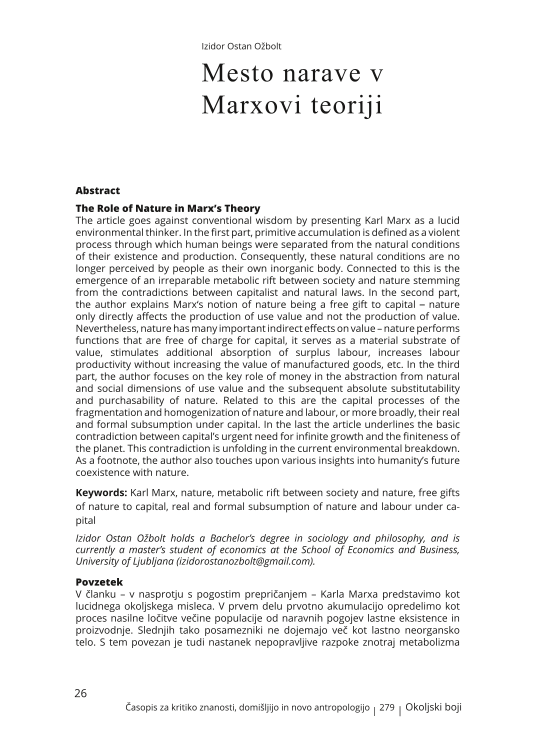The article goes against conventional wisdom by presenting Karl Marx as a lucid environmental thinker. In the first part, primitive accumulation is defined as a violent process through which human beings were separated from the natural conditions of their existence and production. Consequently, these natural conditions are no longer perceived by people as their own inorganic body. Connected to this is the emergence of an irreparable metabolic rift between society and nature stemming from the contradictions between capitalist and natural laws. In the second part, the author explains Marx‘s notion of nature being a free gift to capital – nature only directly affects the production of use value and not the production of value. Nevertheless, nature has many important indirect effects on value – nature performs functions that are free of charge for capital, it serves as a material substrate of value, stimulates additional absorption of surplus labour, increases labour productivity without increasing the value of manufactured goods, etc. In the third part, the author focuses on the key role of money in the abstraction from natural and social dimensions of use value and the subsequent absolute substitutability and purchasability of nature. Related to this are the capital processes of the fragmentation and homogenization of nature and labour, or more broadly, their real and formal subsumption under capital. In the last the article underlines the basic contradiction between capital’s urgent need for infinite growth and the finiteness of the planet. This contradiction is unfolding in the current environmental breakdown. As a footnote, the author also touches upon various insights into humanity’s future coexistence with nature.




